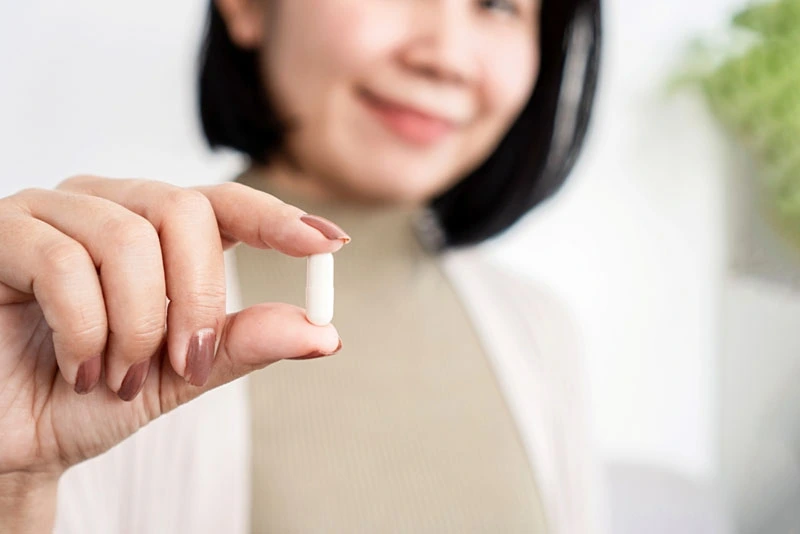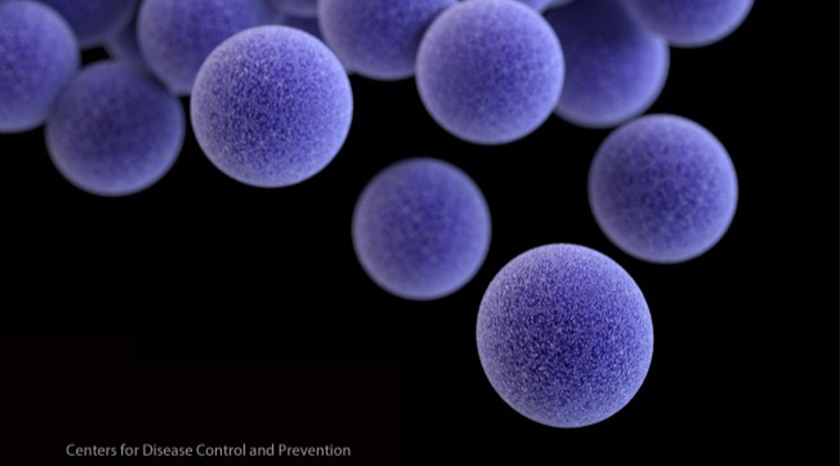A new study published in the journal Nature shows that Bacillus subtilis – a common probiotic strain in digestive supplements- helps eliminate Staphylococcus aureus, a type of bacteria that can cause serious antibiotic-resistant infections.
How Staphylococcus affects human health?
Staphylococcus infections cause tens of thousands of deaths worldwide each year. Methicillin-resistant Staphylococcus aureus, or MRSA, is familiar to many people as a cause of serious disease. S. aureus often can live in the nose or gut without causing any harm; however, if the tissue barrier is broken or the immune system is compromised, these colonizing bacteria can cause life-threatening infections.
In their study, the researchers recruited 200 volunteers in rural Thailand. They first analyzed fecal samples from each study participant for bacteria correlated with the absence of S. aureus. They found 101 samples positive for Bacillus, primarily B. subtilis— the type found mixed with other bacteria in many probiotic products. Bacillus bacteria form spores that can survive harsh environments and commonly are ingested naturally with vegetables, allowing them to grow in the intestine temporarily. The scientists then sampled the same 200 people for S. aureus in the gut (25 positive) and nose (26 positive). They found no S. aureus in any of the samples with probiotic Bacillus. To further validate their findings, the scientists colonized the gut of mice with S. aureus and fed them B. subtilis spores to mimic probiotic intake. Probiotic Bacillus given every two days eliminated S. aureus in the guts of the mice.
What is MRSA?
Methicillin-resistant Staphylococcus aureus (MRSA) is a type of bacteria known for its resistance to multiple antibiotics, making it challenging to treat and control. The rise of antibiotic-resistant strains has prompted researchers to explore alternative approaches. Human studies have shed light on the effectiveness of a probiotic strain called Bacillus against MRSA in recent years.
- MRSA infections pose a significant threat to public health, particularly in healthcare settings where they can spread rapidly among vulnerable individuals.
- Traditional treatment options often involve powerful antibiotics, but the increasing prevalence of antibiotic resistance has limited their effectiveness. As a result, alternative strategies are crucial to address the challenges posed by MRSA.

The Role of Probiotics
Probiotics are live microorganisms that confer health benefits to the host when administered adequately. While commonly associated with digestive health, emerging research suggests that probiotics may also play a vital role in immune modulation and pathogen control. In addition, certain strains of probiotics have shown promising antimicrobial properties, and Bacillus is one such strain that has garnered attention for its potential in combating MRSA.
Mechanisms of Action
The effectiveness of Bacillus against MRSA can be attributed to various mechanisms. These are as follows:
- Bacillus produces antimicrobial substances, such as bacteriocins, which inhibit the growth and survival of MRSA.
- Bacillus competes with MRSA for resources and space in the gut, preventing its colonization and subsequent systemic infections.
- Bacillus has immunomodulatory effects, bolstering the body’s natural defense mechanisms against MRSA.
Implications and Future Directions
The findings from human studies provide promising evidence of Bacillus’ effectiveness against MRSA infections. However, further research is necessary to determine the optimal dosage, duration, and strains of Bacillus for different scenarios.
Additionally, more studies are needed to assess Bacillus’s long-term safety and efficacy in diverse populations.
In the realm of MRSA treatment and prevention, Bacillus-based probiotics present a potentially valuable addition to the current arsenal of therapeutic options. They offer a natural and alternative approach that may help reduce the reliance on antibiotics and mitigate the growing threat of antibiotic resistance.
Frequently Asked Questions
What are the future directions for researching Bacillus probiotics and MRSA?
Future research on Bacillus probiotics and MRSA will focus on understanding their antibacterial properties in greater detail, developing comprehensive treatment strategies, and optimizing probiotic strains for improved efficacy.
Could Bacillus probiotics replace antibiotic treatment for MRSA?
Bacillus probiotics show promise against MRSA, but they are not currently considered complete replacements for antibiotics. They are considered potential supplementary treatments, enhancing overall health alongside conventional antibiotic therapy.
Are there any potential side effects or risks associated with Bacillus probiotics?
Bacillus probiotics are generally safe to consume. However, individuals with weakened immune systems, chronic health conditions, or those taking certain medications should consult healthcare professionals before using them to be aware of any potential side effects.
References:
P Piewngam et al. Pathogen elimination by probiotic Bacillus via signaling interference. Nature DOI: 10.1038/s41586-018-0616-y(2018).




